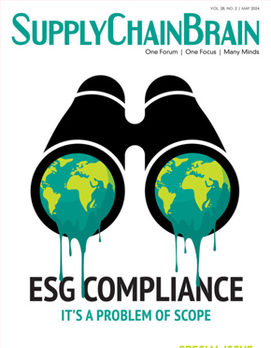
The longer the U.S. economy stays strong, the greater the possibility of a deep recession.
Drawing on basic tenets of economics, that’s simply a statement of fact. Experts can argue over the frequency and extent of economic cycles, but they can’t deny their inevitability. And with the U.S. only a few months away from racking up the longest recovery in its recorded history (dating back to the 1850s), the nation is overdue for a reversal of fortune.
Some economists, however, remain bullish for the time being. Nariman Behravesh, chief economist with IHS Markit, put the chance of recession in 2019 “at only about a third, maybe even lower.” And, for next year and 2021, “fifty-fifty.”
Speaking at TPM 2019 in Long Beach, Calif., the latest edition of an annual conference sponsored by IHS Markit and the Journal of Commerce, Behravesh acknowledged that U.S. economic growth is slowing, and will likely remain below trend for the next year or so.
However, Behravesh didn’t echo the dire predictions of some economists, who expect the next plunge to occur by 2021 if not sooner.
Worrisome possible triggers include a prolonged trade war between the U.S. and China, rising interest rates and energy prices, a sluggish or declining stock market, geopolitical turmoil in multiple countries, and insupportable levels of sovereign, corporate and private debt.
The ultimate cause of the next recession, as well as its timing, is anyone’s guess. But as growth slows, the economy becomes more vulnerable to any number of negative factors, said Behravesh. “At 3.5 to 4 percent growth, it would need a big shock to push us into recession. If it’s 2 percent, it doesn’t take such a big shock, and there are plenty of candidates out there.”
That said, economic recoveries “don’t die of old age,” said Behravesh. “They get killed off.” Culprits include policy errors by central banks, such as mistimed efforts at tightening the money supply; oil shocks, and the bursting of asset bubbles. (In the case of the last, overvalued dotcom startups and real estate prices were the catalysts of recent downturns. Possible current bubbles include cryptocurrencies and high debt levels.) But “none of these are very high-probability events for now,” Behravesh insisted.
Don’t be misled by sudden plunges in stock values, such as that experienced at the end of last year. “Stock markets are lousy predictors of recession,” Behravesh said. “It’s been said that they predicted 23 of the last eight recessions.” (He might have been doubling down on a statement by economist Paul Samuelson, who once famously joked that the market predicted “nine of the last five recessions.”)
Nevertheless, Behravesh is enough of a realist to cite what he called “troubling” trends in global trade and manufacturing. Trade growth, at 5 percent last year and around 3 percent now, has been soft. And the manufacturing sectors in China, Japan and the Eurozone are, for all intents and purposes, already in recession.
U.S. protectionist policies are a factor in the slump, he said, but aren’t the main reason for it. China’s current plight is mostly the result of erratic policy shifts by its own government, which swings wildly between actions to stimulate and slow growth. At one moment, it will allow the compiling of huge debt loads to fund economic expansion. Then it will put on the brakes in an effort to deleverage an overburdened banking system.
Europe has its own set of problems, including the continuing turmoil caused by Brexit, declining exports by Germany, which relies heavily on foreign sales, and the alarmingly weak economy of Italy, which has suffered five recessions since adopting the euro in 1999.
President Trump’s imposition of tariffs, and other actions sparking a trade war with China, have “done a lot of damage,” Behravesh acknowledged. Certain industries such as American steelmakers have been helped, while other domestic producers have seen higher prices and shortages of key raw materials. Some U.S. manufacturers, such as Harley Davidson, have responded by shutting down domestic plants and shifting a portion of their production overseas.
Nevertheless, Behravesh believes, conditions in the U.S. signal a positive future, at least in the short term. A major reason for his optimism is the vibrant services sector, which accounts for 80 percent of the U.S. economy and has so far been unaffected by the recession in manufacturing.
Moreover, U.S. consumer spending remains healthy, at approximately $14tr, larger than the economy of China. “It’s on a pretty solid foundation,” Behravesh said, “and will keep things going for at least a while.”
Looking to the year ahead, “unless we make some serious policy mistakes, U.S. growth of around 2 percent is in the cards,” Behravesh said. “But we can still blow this one if we’re not careful.”







